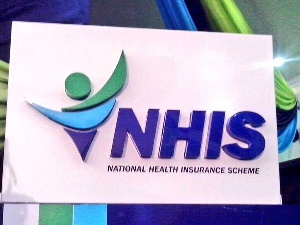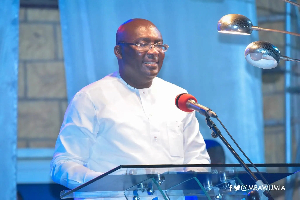A new report by development charity Oxfam is warning that Ghana’s much-vaunted National Health Insurance Scheme (NHIS) is excluding the poorest and most vulnerable among the population from coverage, as they typically cannot afford the premiums.
The charity said most often only those who are better-off are able to sign up for insurance, leaving a majority of low-income families without coverage. It said there is a “misguided preoccupation” with health insurance in poor countries, leaving other funding methods largely unexplored.
“Ghana’s National Health Insurance Scheme (NHIS) has been labelled a success but excludes 64 percent of the population, and the vast majority of these are poor people,” Oxfam said in the report published today.
“Although the insurance premiums paid by informal sector workers are subsidised, large numbers of Ghanaians cannot afford the NHIS premiums, which range from US$3 to US$22 per year. So while every citizen pays for the NHIS through the 2.5 percent levy on VAT, the majority of families on low incomes are not enrolled in the NHIS and therefore do not benefit,” it added. According to the World Bank, almost 52 percent of Ghanaians live on less than US$2 a day.
The NHIS, which has been in existence for a decade, covers the direct costs of health services and medicines for most common diseases in Ghana. Funding for the scheme comes from a 2.5 percent value added tax, transfers from the Social Security and National Insurance Trust (SSNIT) on behalf of formal sector workers, and annual premium contributions from members.
But Oxfam said just 36 percent of Ghanaians are covered by the scheme, while the remaining 64 percent of the population continue to make out-of-pocket payments to access healthcare. In its 2011annual report, the National Health Insurance Authority (NHIA) said 33 percent of Ghanaians were active members of the scheme in 2011, and set a target of 40 percent coverage in 2012.
The scheme’s most pressing challenge, according to most accounts, is the sustainability of its funding as health costs rise and membership increases. A promise by government to introduce a once-in-a-lifetime premium for members has been abandoned recently, and the World Bank warned last year of the scheme’s collapse if funding is not increased and inefficiencies are not plugged.
Oxfam’s report was also cynical about health insurance schemes in other poor countries, arguing that coverage in Tanzania after a decade of health insurance is only 17 percent of the population, while it is 18 percent in Kenya -- where the National Hospital Insurance Fund has been running for 50 years.
Kevin Roussel, Head of Oxfam’s Essential Services Campaign, said: “Three people every second are forced below the poverty line because of catastrophic healthcare costs, but this obsession with insurance as the answer is leading poor countries down a blind alley.
“Most insurance schemes create a lose-lose situation. They fail to reach the poorest people, and yet collecting insurance premiums costs a huge amount to administer without raising any significant amounts of cash.”
The charity urged poor countries to boost their tax collections, which could lead to additional government revenues of US$269billion a year, and to focus on finding home-grown health-financing solutions that are universal and equitable.
“A growing number of developing countries, including Brazil, Malaysia, Mexico and Thailand, have built home-grown health financing systems that are actually working to achieve universal healthcare.
Rather than focusing efforts on collecting premiums from those who are too poor to pay, these countries have prioritised general government spending for health,” it said.
Click to view details



Business News of Wednesday, 9 October 2013
Source: B&FT

















